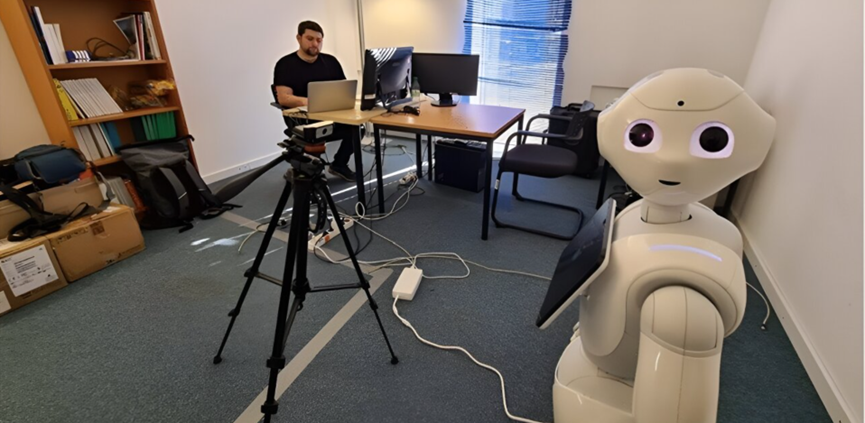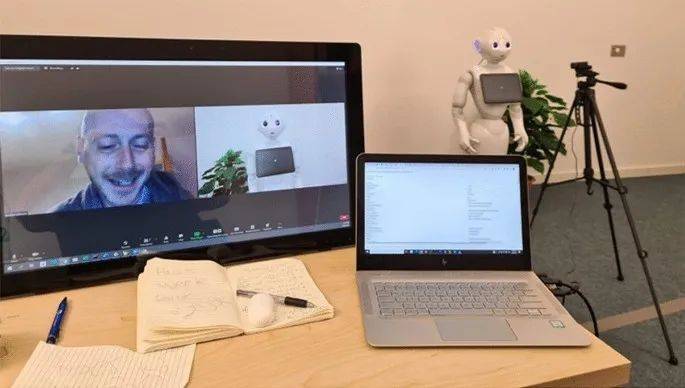
 Pepper from SoftBank Robotics
Pepper from SoftBank Robotics
New research shows that people who interact with social robots gradually become more open and feel less lonely.
This research was led by the University of Glasgow and published in the International Journal of Social Robotics. This study also found that interacting with social robots can gradually improve people's mood, indicating that social robots can be used as an effective intervention to support people's emotional health. This study aims to examine people's long-term and repeated use of social robots, especially to study people's self-disclosure of emotions.
experimental method
to address participants by their first names to provide a natural sense of interaction. Pepper will respond neutrally or empathically to participant answers and statements. Meanwhile, Pepper uses a cheerful, high-pitched voice and expressive body language to communicate. Following guidelines for long-term interaction design in social robots, Pepper's responses are emotional and resonant, designed to convey an understanding of the user's emotional state and display contextually relevant emotional responses.
In addition, by turning on the "Basic Awareness" function, Pepper can divert or move the gaze from the camera without pre-programmed logic. To ensure a natural interaction, Pepper's eyes move naturally with the presentation software, matching the typical behavior of human interlocutors talking to each other.
The study found
In terms of happiness, participants’ moods improved after interacting with Pepper, and participants rated Pepper’s responses as more comforting. These findings provide further evidence of the positive outcomes of using social robots as an intervention to support people's well-being. In addition, as the experiment time went by, the participants' loneliness decreased significantly. Loneliness is both a risk factor and a symptom of mental disorders, and social robots are often discussed as potential companions for people with autism. The findings show that repeated interactions with social robots can reduce people's feelings of loneliness. Through further innovation, social robots will become one of the powerful means to solve the public health problem of loneliness.
These results provide meaningful evidence for user experience, acceptance and trust in social robots. From this point of view,
Pepper robot can play an important role in the fields of health care, nursing, companionship and psychological problem intervention in the future.
Dr. Guy Laban, associate research associate at the University of Glasgow and postdoctoral associate at the University of Cambridge, said: "Studies like this are crucial given recent advances in artificial intelligence (such as GPT). They help We better understand how humans can develop healthy relationships with artificial intelligence entities, such as robots, to effectively use this technology in the future."
The above is the detailed content of Pepper Robot Research: Using Artificial Intelligence Social Robot to Ease Loneliness. For more information, please follow other related articles on the PHP Chinese website!
 What is the encoding used inside a computer to process data and instructions?
What is the encoding used inside a computer to process data and instructions?
 What java workflow engines are there?
What java workflow engines are there?
 Solution to java report that build path entries are empty
Solution to java report that build path entries are empty
 How to solve mysql query error error
How to solve mysql query error error
 What are the functions of computer networks
What are the functions of computer networks
 What are the servers that are exempt from registration?
What are the servers that are exempt from registration?
 Introduction to the relationship between php and front-end
Introduction to the relationship between php and front-end
 How to use jsreplace function
How to use jsreplace function




